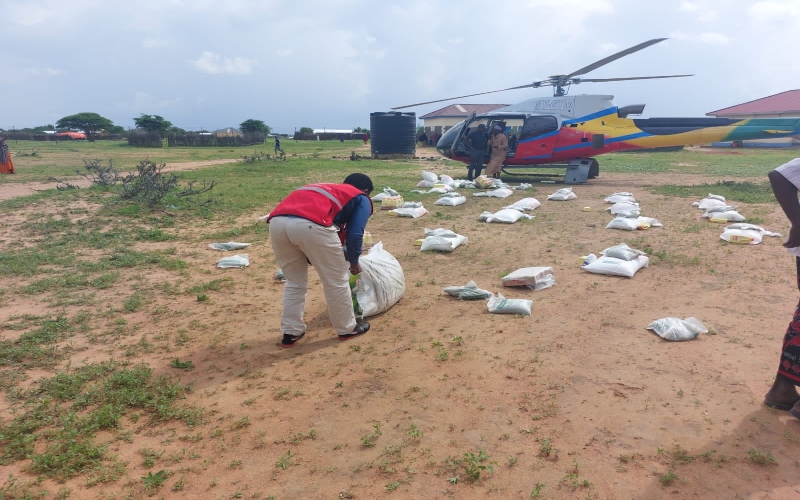City Hall moves to recognise urban farmers in policy review

Urban farming trends such as balcony and kitchen gardens have grown rapidly, particularly after the Covid-19 pandemic, as families sought alternative ways to secure food and generate income.
City Hall is taking steps to formally recognise residents who farm in small urban spaces, including balconies, verandas, and rooftops, as part of a broader effort to modernise the city’s approach to urban agriculture.
The Nairobi County Food, Agriculture and Natural Resources subsector, in partnership with the Mazingira Institute, recently hosted a workshop to strengthen gender integration in the ongoing review of the Nairobi Urban and Peri-Urban Agriculture, Livestock and Fisheries Policy.
More To Read
- Ombudsman orders Nairobi County to prioritise pension debts in county budget
- IPOA launches probe as family demands truth over boda boda rider’s death in Nairobi police cell
- Cabinet approves Sh9.7 billion livestock value chain support project to boost dairy and cereals
- Cabinet approves Sh5 trillion strategy to expand roads, energy, agriculture and trade
- Uhuru Park set for food, music and culture as three-day Nairobi Festival kicks off
- Nairobi orders staff to submit academic, professional records by January 15
The session gathered participants from across the city’s food system to ensure that the updated policy accurately reflects the daily experiences of urban farmers working with limited space.
Organisers emphasised incorporating gender-responsive measures, drawing from the Mazingira Institute’s Women’s Spaces initiative, which has documented the challenges faced by women, the majority of small-scale urban growers.
These barriers include limited access to resources, training, and technical support, which the revised policy aims to address.
The workshop focused on creating a policy framework that is inclusive, participatory, and fair, considering the needs of both men and women engaged in urban farming.
Food, Agriculture and Natural Resources chief officer Gladwell Cheruiyot highlighted that the draft policy is being finalised to tackle pressing issues such as climate impacts, food system changes, and the need for resilience in a fast-growing city.
“Before undergoing public participation, it is important for the draft to go through stakeholder engagement to ensure it meets quality and inclusivity standards,” Cheruiyot said.
The current Nairobi City County Urban Agriculture, Livestock and Fisheries Policy, developed in 2015, set out guidelines for urban farming growth and regulation.
The ongoing review seeks to update these goals to match today’s realities, including population expansion, climate variability, urban food insecurity, and modern farming technologies suitable for small spaces.
Participants in the workshop included technical staff from the Crops and Forestry, Livestock and Fisheries, Veterinary Services, Food Systems, and Sector Programmes units, alongside the NAVCDP coordination team, County Gender and Legal representatives, and the Mazingira Institute team.
Their input helped strengthen alignment on gender inclusion, sector priorities, and policy coherence.
Urban farming trends such as balcony and kitchen gardens have grown rapidly, particularly after the Covid-19 pandemic, as families sought alternative ways to secure food and generate income.
Through innovative methods like vertical gardening, hydroponics, container farming, hanging gardens, and wall-mounted planters, residents are turning previously unused spaces into productive areas for vegetables, herbs, and fruits.
This approach not only improves household food security but also enhances livelihoods and contributes to a greener city environment.
Top Stories Today











































